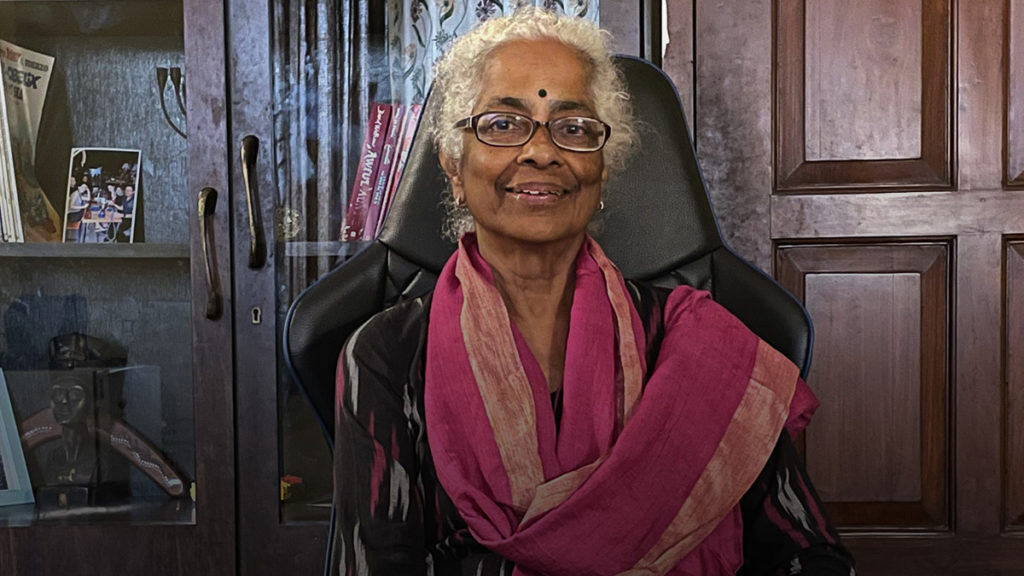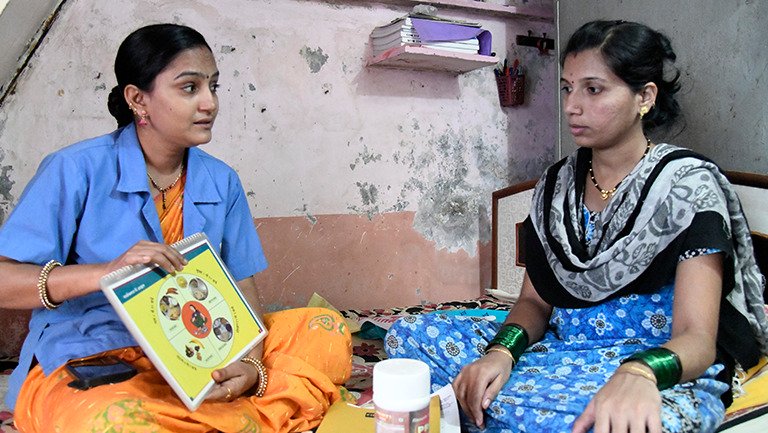AS the executive director of SNEHA Dr. Shanti Pantvaidya plays a key role in protecting the lives of thousands of high-risk pregnant mothers and reducing maternal and neonatal mortality rates. Dr. Pantvaidya, leads and gives direction to several programmes at SNEHA, namely Maternal & Child Health, Public System Partnership, Empowerment, Health & Sexuality of Adolescents, Prevention of Violence against Women and Children (Strategy, Implementation, Research Partnership & Scaling) and Research & Information Management.
Before joining SNEHA, Dr Pantvaidya worked as a medical teacher for 35 years, including as Professor/Head of Anaesthesiology Services for 20 years at Lokmanya Tilak Municipal General Hospital (LTMGH), Mumbai’s largest public hospital.

In 1999, neonatologist Dr Armida Fernandez and a group of other neonatologists and philanthropists established SNEHA – Society for Nutrition, Education and Health Action to work on the twin goals of improving health-seeking behaviour among underserved communities and improving the quality of public health services. Today, SNEHA is a 490+ person-strong organisation that helps build healthy lives for urban women and children.
Give spoke with Dr Pantvaidya, where she shared her journey with SNEHA, her love for medicine and much more.
Give: Tell us a bit about yourself, your childhood, and what/who inspired you to be a doctor?
Dr Shanti Pantvaidya: I was born in a family of journalists and I was a bright student. I knew little about medicine, but when I started studying, I simply loved the profession and I truly worked with all my heart. By choice, I took a full-time job in public hospitals because, by nature, I can limit my needs and I am not competitive.
Whether it is talking to an auditorium full of students or running an OPD, or being in intensive care or working in an operation theatre because I am an anesthesiologist, I enjoyed everything. In public medical colleges, we had to maintain very high standards and we did not compromise on anything. So when I retired, I wanted to do something very meaningful. Dr Armida Fernandez and I were contemporaries, and we both had decided that we would start an NGO after our retirement but since Sion Hospital asked me to stay for setting up the Emergency Medical Services, I had to stay back, while Dr Armida worked on the formation of SNEHA.
Give: Share one of your first experiences of being involved in the social sector? A moment that is significant to you in some way.
SP: I had no experience visiting a slum until my first visit to Dharavi in Mumbai. Many women had gathered to see that a doctor, especially a woman doctor, was in their area. I went to their homes, and they had many questions about health, especially on heart attacks and blood pressure. For about one to two hours, we were just discussing issues pertaining to heart attack, as I was a cardiac specialist, and they were asking so many pertinent questions. Their hospitality extremely really touched me. Their homes were small but spotless. Even though outside there were open gutters and filth all around, they had kept their homes clean. It was a touching experience for me.
Give: Why do you think India faces more problems with high maternal and neonatal mortality rates compared to other countries with lower socioeconomic standards?
SP: maternal and neonatal mortality rates are high because of the disparity. In India, strangely, we might have a high GDP growth rate, but there is iniquity, and it is quite gross therefore that the reach of the public healthcare service is not as much as it is required. Ours is a large country, and urban areas are overcrowded as people come there looking for opportunities.

Making health services within their reach is a challenge. There is a lack of awareness about prenatal care and maternal health. There are also lots of myths and misconceptions that are prevalent among the communities, like if a pregnant woman eats well, the baby may become too big leading to problems during delivery. We can overcome all of this with steady work, and thankfully in recent years, the maternal and neonatal mortality rates are coming down.
Give: Can you share with us any heart-touching thing or story that has happened to you through SNEHA?
SP: Not sure if I can call this a heart-touching story, but it is a heart-winning story. Long back, when one professor of cardiac surgery from Mayo Clinic, US, visited Mumbai, he wanted to see Dharavi. And he was amazed by the hospitality of the people there. He was impressed with the hard-working, industrious people of Dharavi. He was so impressed by the auto that he travelled in that he bought it and kept it as a model in his garage. The fact that Dharavi bowled him over with its warmth made me feel very proud.
Give: What are three things you would take with you on a 16-hour flight?
SP: Books, comfortable attire and my medicines.
Give: You have been forced to eat only four things for the rest of your life. Which four items would you choose?
SP: Rice, dal, sabzi, fruits & nuts, and curd. As I am from Kerala, I am very fond of curd, and I am a vegetarian, so I love dal, vegetables and fruits.
Interviewed by Sruthy Natarajan
–
Give’s mission is to “make giving bigger and better.” Give is the most trusted donation platform in India for fundraisers and crowdfunding campaigns. Through our technology solutions, we enable individuals and organisations to fundraise and donate to a cause, charity or NGO with trust and convenience. Give’s community of 2.7M+ individual donors and 300+ organisations supports 3,000+ verified nonprofits with 80G deduction and serves 15M+ people across India. Find a fundraiser today!
Discover more from
Subscribe to get the latest posts sent to your email.
